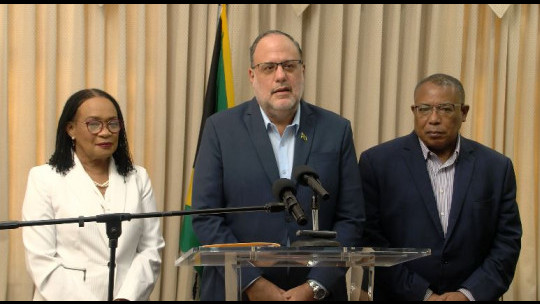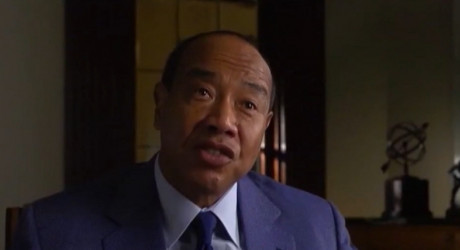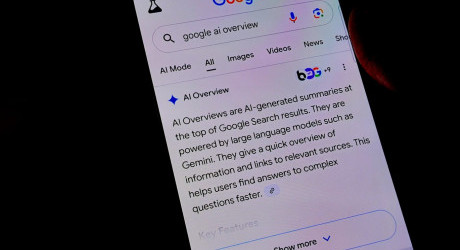.png)
Opposition Leader Mark Golding
By Nakinskie Robinson
Amid an impasse between the opposition People's National Party and the government on matters relating to constitutional reform, Opposition Leader Mark Golding says the party does not support the idea of a referendum being used to determine the country's final appellate court.
The Opposition Leader has stood firm in his position that he's not in favour of a phased approach to republic status, causing a political divide.
This approach, would see the country doing away with the British Monarch as head of state then subsequently adopting the Caribbean Court of Justice as its top court at a later date.
The UK based Privy Council remains Jamaica's final court.
Mr. Golding, however, says that responsibility cannot be laid on the backs of Jamaicans, but that the government must be forthcoming with its decision on the CCJ.
"The process of removing the Privy Council and installing the CCJ as our final court has to be done by Parliament. It has to go to Parliament. It can't be done by a referendum that bypasses Parliament; that would violate the Constitution that we have," he contended.
"Matters to do with the justice system and the judiciary are best kept out of the realm of politics. It's not good to infect decisions around the justice system by the political process. Many, many other countries have gone through this process and none of them have done so via a referendum. And for us, the Constitution is clear on the matter, as interpreted by the Privy Council itself, and it does not favour a referendum. We may disagree on the point, but that's our position," he insisted.
The Opposition Leader was speaking during a media briefing Tuesday morning at the People's National Party's headquarters in St. Andrew.
Only three Caribbean countries, Barbados, Belize and Guyana, have recognised the CCJ as their final court.
The government had initially indicated that adopting the CCJ would not be dealt with upfront.
But Mr. Golding said the opposition will not relent on the matter given the implications on Jamaicans.
"Generations are going to have to live with this. Jamaican people should have access to justice now to their final court. It's been denied them from slavery to now. Very few cases go to the Privy Council from Jamaica each year. It's an untenable situation, and now they're trying to impose a rule that would allow them to vet whether something which is covered by our Constitution and gives somebody an appeal as a right can in fact have that appeal heard. So the situation is not tenable to us and we need to fix it now."
The Opposition Leader argued that the matter is a fundamental issue of governance and that the systems meant to serve the Jamaican people must be designed optimally.
He said the party's unrelenting approach is driven by principle and not to serve any political agenda.
Sixteen clauses from the Constitutional Reform Committee report were singled out by the party.
The PNP said it should be clearly stated that the official name of Jamaica remain, despite becoming a republic.
The proposed formula for the Prime Minister and the Leader of the Opposition to achieve consensus on the choice of President has also not found favour with Mr. Golding.
He said any solution which enables the President to be approved via a simple majority vote of both Houses of Parliament effectively incentivises the Prime Minister to choose someone who he or she perceives as favouring his or her party.
comments powered by Disqus










 All feeds
All feeds







